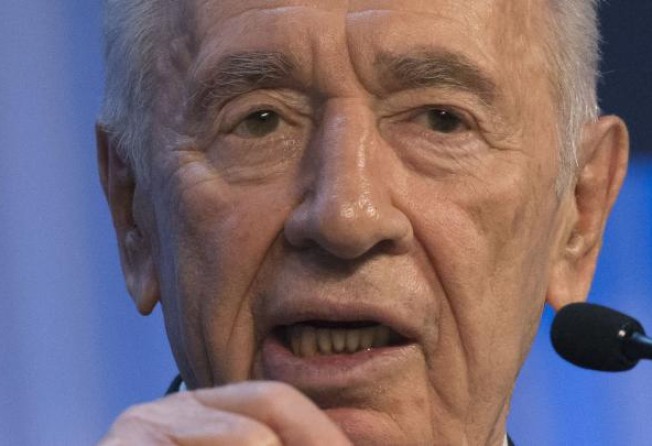Iran shows little sign of budging in row over its nuclear programme
Israeli president warns of a nuclear-armed nation under ‘terrifying’ Ahmadinejad

Israeli President Shimon Peres said yesterday that the threat of a nuclear-armed Iran was growing under the "terrifying dictatorship" ruling the Islamic republic.
"The Iranian danger has grown," Peres said at the opening of the new parliament. "It threatens our existence, the independence of the Arab states, the peace of the whole world.
"At its head stands a group of ayatollahs in their religious robes, a terrifying dictatorship, staining Persian history and a nightmare for its people."
Much of the international community fears that Iran's nuclear programme includes efforts to develop nuclear weapons, a charge that Tehran denies.
Israel believes that Iran must be prevented from reaching military nuclear capabilities at any cost and refuses to rule out military intervention to achieve this.
Addressing the opening of the 19th knesset, or parliament, elected in a January 22 general election, Peres called on the United Nations and the Arab League to act urgently to end the turmoil in Syria.
"Iran is a danger and Syria is a tragedy. Its president butchers his people. In my opinion the UN should task the Arab League with the immediate formation of a transitional government in Syria to save it from self-destruction. Assad, who has murdered tens of thousands has also murdered his future," he said.
Peres' comments came as Iran and world powers broke a deadlock over the date and venue of stalled negotiations on Tehran's disputed nuclear ambitions, agreeing to meet in Kazakhstan later this month.
The agreement was made in a phone conversation between the offices of Iran's top nuclear negotiator, Saeed Jalili, and European Union foreign policy chief Catherine Ashton.
Meanwhile, Iranian President Mahmoud Ahmadinejad arrived in Egypt yesterday for the first visit by an Iranian leader in more than three decades, marking a historic departure from years of frigid ties between the two regional heavyweights.
Egypt's Islamist president, Mohammed Mursi, gave Ahmadinejad a red-carpet welcome on the tarmac at Cairo airport, shaking the Iranian's hand and exchanging a kiss on each cheek as a military guard of honour stood at attention.
Ahmadinejad's three-day visit, which is centred around an Islamic summit, is the latest sign of improved relations between the countries since the 2011 uprising that ousted long-time ruler Hosni Mubarak and brought an Islamist government to power.
Such a visit would have been unthinkable under Mubarak, who was a close ally of the US and shared Washington's deep suspicions of Tehran.
Just after his arrival, Ahmadinejad and Mursi held a 20-minute talk that focused on the civil war in Syria. Iran is Damascus' closest regional ally, while Egypt is among those that have called on Syrian President Bashar al-Assad to step down.
The Iranian leader was to meet with the top cleric at Al-Azhar, the Sunni Muslim world's major religious institution.
Egyptian officials have been careful to couch the current visit by Ahmadinejad as one of a leader attending the Organisation of the Islamic Conference summit. Agence France-Presse, Associated Press